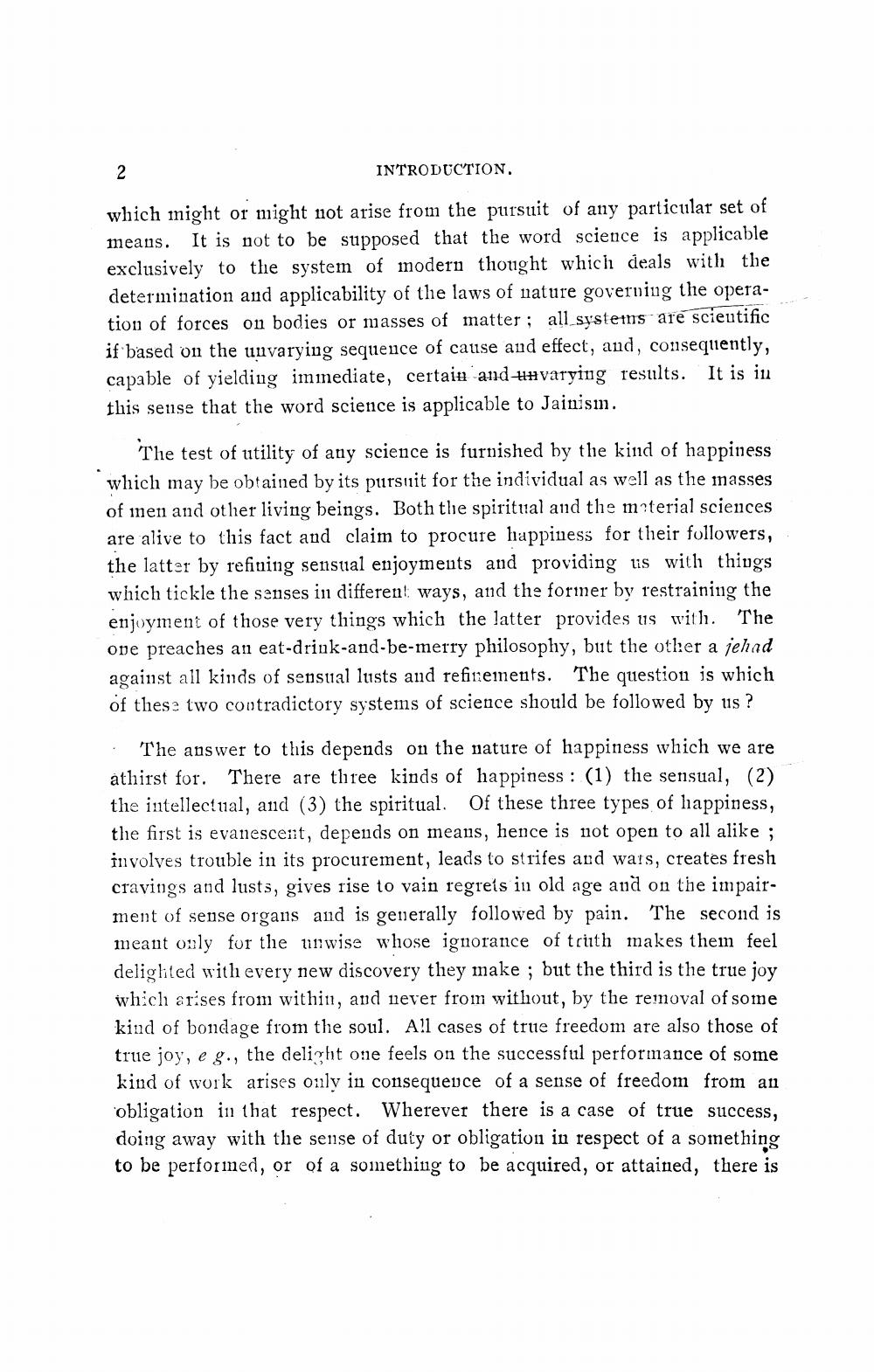Book Title: Parmatma Prakash Author(s): Yogindra Acharya Publisher: Central Jaina Publishing House View full book textPage 7
________________ 2 INTRODUCTION. which might or might not arise from the pursuit of any particular set of means. It is not to be supposed that the word science is applicable exclusively to the system of modern thought which deals with the determination and applicability of the laws of nature governing the operation of forces on bodies or masses of matter; all systems are scientific if based on the unvarying sequence of cause and effect, and, consequently, capable of yielding immediate, certain and unvarying results. It is in this sense that the word science is applicable to Jainism. The test of utility of any science is furnished by the kind of happiness which may be obtained by its pursuit for the individual as well as the masses of men and other living beings. Both the spiritual and the material sciences are alive to this fact and claim to procure happiness for their followers, the latter by refining sensual enjoyments and providing us with things which tickle the senses in different ways, and the former by restraining the enjoyment of those very things which the latter provides us with. The one preaches an eat-drink-and-be-merry philosophy, but the other a jehad against all kinds of sensual lusts and refinements. The question is which of these two contradictory systems of science should be followed by us? The answer to this depends on the nature of happiness which we are athirst for. There are three kinds of happiness: (1) the sensual, (2) the intellectual, and (3) the spiritual. Of these three types of happiness, the first is evanescent, depends on means, hence is not open to all alike; involves trouble in its procurement, leads to strifes and wars, creates fresh cravings and lusts, gives rise to vain regrets in old age and on the impairment of sense organs and is generally followed by pain. The second is meant only for the unwise whose ignorance of truth makes them feel delighted with every new discovery they make; but the third is the true joy which arises from within, and never from without, by the removal of some kind of bondage from the soul. All cases of true freedom are also those of true joy, e g., the delight one feels on the successful performance of some kind of work arises only in consequence of a sense of freedom from an obligation in that respect. Wherever there is a case of true success, doing away with the sense of duty or obligation in respect of a something to be performed, or of a something to be acquired, or attained, there isPage Navigation
1 ... 5 6 7 8 9 10 11 12 13 14 15 16 17 18 19 20 21 22 23 24 25 26 27 28 29 30 31 32 33 34 35 36 37 38 39 40 41 42 43 44 45 46 47 48 49 50 51 52 53 54 55 56 57 58 59 60 61 62 63 64 65 66 67 68 69 70 71 72 ... 94
